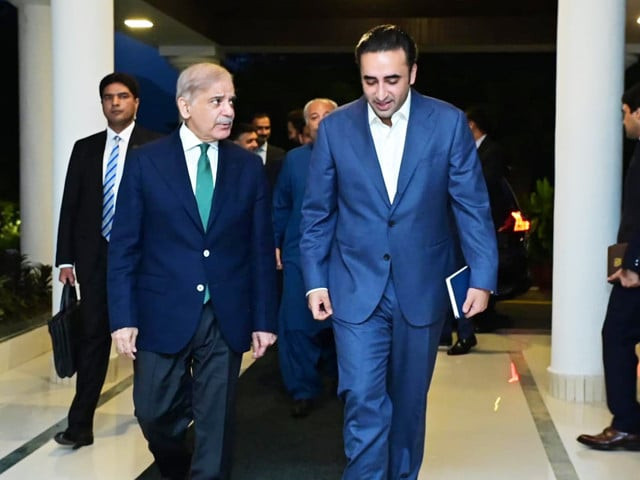PML-N, PPP embroiled in legitimacy tussle
Power-sharing issue remains unresolved even months after formation of a coalition government

In the aftermath of the General Elections 2024, the leading political rivals, the Pakistan Muslim League–Nawaz (PML-N) and the Pakistan People’s Party (PPP), entered a coalition, agreeing to form committees to address the power-sharing arrangements in Punjab.
Talks were held between the two parties to implement the Charter of Democracy, which was to be negotiated by their leaders, who also signed a written agreement on the power-sharing formula before the formation of the coalition government.
Going by precedent, it was believed that the PPP, as an ally of the government, would likely receive a share of power in Punjab. However, much to the dismay of the PPP, this was not the case since the ruling party seemed unwilling to involve the coalition party in governance matters.
Discontent arose among the leaders and the PPP boycotted the budget session in the core province on the grounds that the PML-N had not consulted with them before devising the upcoming fiscal policy. Soon after, however, the PPP adopted a conciliatory attitude and extended its support to the ruling party by approving the budget.
Once the talks resumed, Punjab Governor Saleem Haider, a member of the PPP, conveyed his party’s grievances to the Prime Minister through Chairman PPP Bilawal Bhutto Zardari, however, due to the unavailability of Deputy Prime Minister Ishaq Dar, the matter was delayed.
Although the PML-N had assured to resolve the issue once Dar returned, the political developments surrounding the 26th Constitutional Amendment took attention away from the matter yet again.
According to Haider, PML-N is still not willing to share power with the PPP in Punjab. “The committee established in this regard held several meetings, but no solution has been found so far hence the matter should be left aside,” said Haider, who went on to add that he had brought the issue to the attention of the top leadership.
According to Salman Abid, a political affairs expert, the coalition parties in the federation and the provinces, including the PML-N and the PPP despite being allies are developing differences between them.
“This is primarily because the formula that was decided for government formation by both the political parties is not being followed, and the PPP is not getting its share of power in the federation and the provinces. PML-N makes a political alliance, but they maintain their superiority. Although the PML-N has held many meetings for the formula of power sharing in Punjab, they have not yet accepted anything posited by the PPP and no funds have been released either. In this regard, PPP has protested several times in the Punjab Assembly sessions and boycotted the meetings,” analysed Abid.
The top leadership of the PML-N were contacted regarding the issue of power-sharing in Punjab, however, they maintained that no comments could be made by their government, which has yet to formulate a solution. The PPP representatives claimed that the PML-N is afraid of their popularity in Punjab, hence the party is not including them in power sharing in the core province.
As an ally in the provincial government, the PPP expects to receive development funds for constituencies where they have elected representatives, as well as key government positions like the Advocate General, Assistant Advocate General, and Chairman of various corporations.
Sources have concluded that now the entire matter is between PM Shahbaz and Bilawal, and both of them intend to maintain the alliance for national interest.



1724319076-0/Untitled-design-(5)1724319076-0-208x130.webp)















COMMENTS
Comments are moderated and generally will be posted if they are on-topic and not abusive.
For more information, please see our Comments FAQ